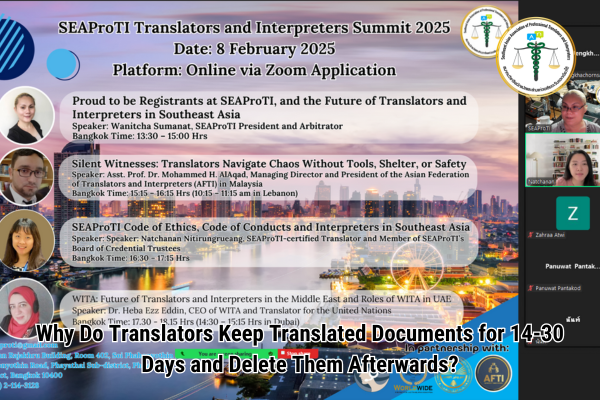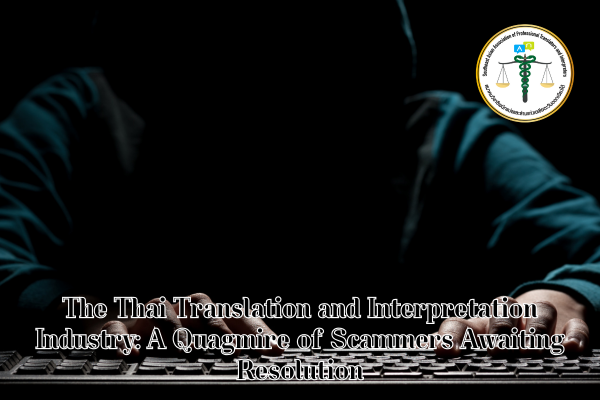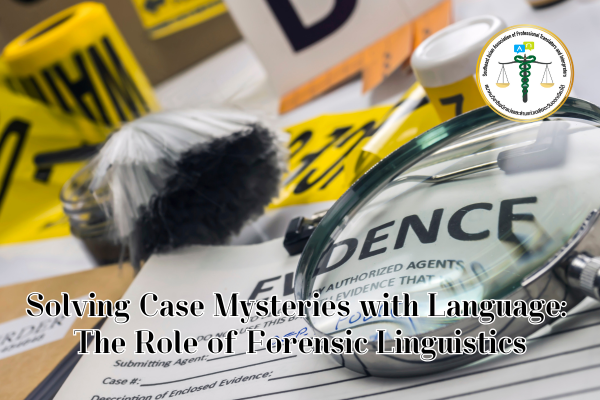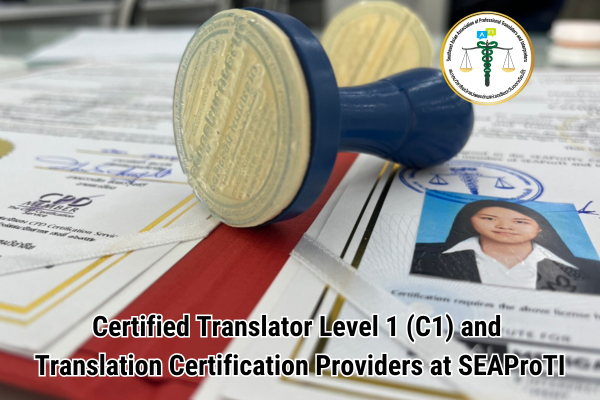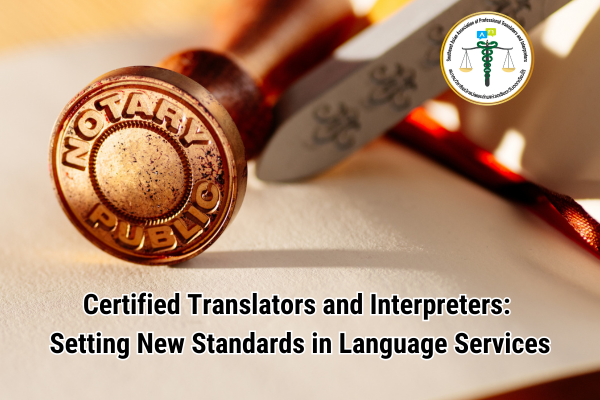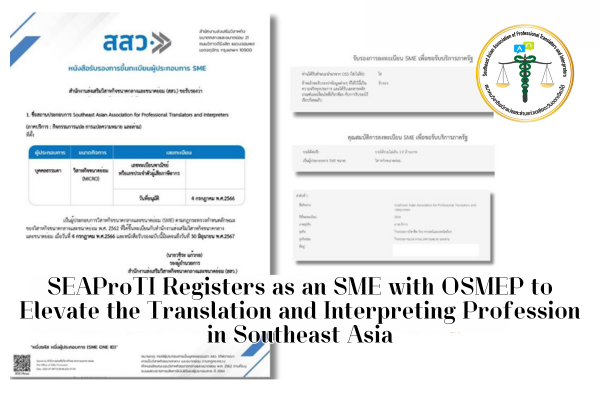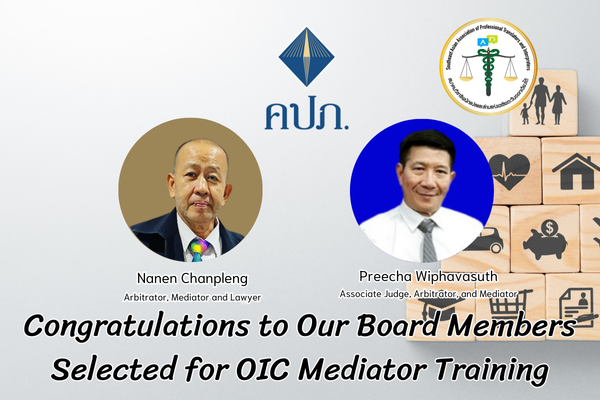The Importance of a Police Clearance Certificate for Certified Translators: Ensuring Trust and Professional Integrity
For those looking to become certified translators, a police clearance certificate might initially seem like an unexpected or even unnecessary requirement. However, when we take a closer look at the nature of the translation industry, especially when dealing with sensitive documents, the rationale behind this necessity becomes clear. In this article, we explore the importance of a Certificate of Clearance (police clearance) for certified translators and why it is crucial for the credibility and trustworthiness of the profession. This requirement is part of a larger framework designed to ensure that clients, including government agencies, law firms, and healthcare providers, can trust the individuals who are handling their sensitive and confidential information.
The Role of Certified Translators and the Sensitivity of Their Work
Certified translators play a critical role in bridging language gaps, particularly in contexts involving legal, medical, financial, or official government documents. The work of a certified translator is not simply about converting words from one language to another; it is about accurately conveying meaning while preserving the integrity of the original message. In many cases, translators work with highly sensitive content that, if mishandled, could have serious implications for the people or organizations involved. For example:
-
Legal Documents: Translators may be tasked with translating contracts, wills, court proceedings, or immigration paperwork. Inaccurate translations could lead to misunderstandings, lawsuits, or even wrongful judgments.
-
Medical Records: Medical translators handle patient records, diagnosis reports, and treatment plans. Errors or breaches in confidentiality in this domain can put patients at risk and violate privacy laws.
-
Official Government Papers: Translators dealing with birth certificates, marriage licenses, or other official documents must ensure that these translations meet high standards of accuracy and legality.
Given the sensitive nature of this work, clients must have confidence that certified translators are trustworthy, responsible, and of good character. This is where the police clearance certificate comes into play.
Ensuring Trust and Integrity
The primary reason for requiring a police clearance certificate for certified translators is to ensure trust and integrity within the profession. Translation is not just about linguistic competence; it also involves handling information that could be sensitive, confidential, or of high value. The role of a translator requires a level of trust comparable to that of legal or medical professionals.
By requiring a police clearance certificate, certification bodies such as the Southeast Asian Association of Professional Translators and Interpreters (SEAProTI) are taking proactive measures to minimize risks and reassure clients. Below are some of the specific ways that a police clearance requirement contributes to the trustworthiness of translators:
-
Assurance of a Clean Legal Record
-
A police clearance certificate is a document that confirms whether an individual has a criminal record. For a profession that deals extensively with confidential and sensitive information, it is crucial to ensure that those handling such documents have a clean legal history. A certified translator with a clean record is less likely to misuse or mishandle sensitive information.
-
-
Prevention of Fraud and Identity Theft
-
The translation industry involves a great deal of trust, especially when handling documents like identification cards, passports, or financial statements. A police clearance certificate helps prevent individuals with a history of fraud, theft, or other criminal activities from gaining access to such sensitive materials. It is a protective measure against potential misuse of personal information, which is especially relevant in a world where data breaches and identity theft are prevalent.
-
-
Maintaining Professional Standards
-
Certification bodies, like SEAProTI, emphasize high ethical standards for their members. By requiring police clearance, they are ensuring that certified translators uphold these standards not only in their work but also in their personal conduct. This helps to maintain the overall credibility of the certification and the translation profession as a whole.
-
-
Client Confidence
-
Clients, whether they are private individuals, corporations, or government agencies, need to feel confident about the individuals they hire for translation services. Knowing that a translator has undergone a police clearance check provides an additional layer of reassurance. It indicates that the translator has been vetted not only for their language skills but also for their trustworthiness and reliability.
-
-
Alignment with International Best Practices
-
Requiring a police clearance certificate for certified translators is in line with international best practices. Professions that involve handling sensitive information—such as lawyers, doctors, or financial advisors—often require some form of background check. By adhering to similar standards, the translation industry aims to protect clients and maintain a high level of professionalism.
-
Mitigating Risk in the Translation Industry
The translation industry, like many other industries, is not immune to risks. When individuals are entrusted with sensitive documents, there is always a risk that the information could be mishandled or leaked. In some cases, translators may even face temptations to misuse the information they have access to, especially if they are working on behalf of powerful clients or governments.
By requiring a police clearance certificate, certification bodies can help mitigate these risks. A clean criminal record does not guarantee that an individual will always act ethically, but it does reduce the likelihood that someone with a history of criminal behavior will be allowed to work in a position of trust. This is especially important in situations where translators may be working with classified government documents or confidential business information.
Ensuring Ethical Conduct and Social Responsibility
A significant part of being a certified translator is adhering to a strict code of ethics. Ethical conduct is especially important when dealing with sensitive information, and certification bodies often have detailed codes of conduct that their members must follow. A police clearance certificate supports this commitment to ethics by providing an initial level of screening for new members.
Furthermore, socially responsible practices are at the heart of SEAProTI’s operations. The association emphasizes the importance of building a healthy community that contributes to the well-being and development of all stakeholders. By ensuring that certified translators have undergone background checks, SEAProTI is not only safeguarding clients but also supporting the professional and ethical growth of its members.
Challenges and Considerations
While the requirement for a police clearance certificate has clear benefits, it is not without challenges. One of the key considerations is the accessibility of police clearance certificates for applicants from different countries. The process of obtaining a police clearance can be time-consuming and bureaucratic, especially for individuals living outside their home countries. This can be a hurdle for potential applicants and may discourage some from pursuing certification.
Additionally, there is the question of privacy. Some individuals may be uncomfortable with the idea of providing a police clearance certificate, viewing it as an invasion of their personal privacy. Certification bodies must strike a balance between the need for thorough vetting and respecting the privacy of applicants. Clear guidelines on how the information will be used and stored can help alleviate some of these concerns.
Conclusion
In conclusion, the requirement for a Certificate of Clearance (police clearance) for certified translators is a crucial aspect of maintaining trust, integrity, and professionalism within the translation industry. Certified translators often deal with highly sensitive documents, and ensuring that they are individuals of good character is essential for protecting clients and upholding the reputation of the profession.
By implementing this requirement, certification bodies like SEAProTI demonstrate their commitment to high ethical standards and professional integrity. While there are challenges associated with obtaining police clearance certificates, the benefits—such as increased client confidence, mitigation of risks, and alignment with international best practices—make it a worthwhile and necessary requirement.
The translation profession is about more than just linguistic ability; it is also about trustworthiness, responsibility, and ethical conduct. A police clearance certificate is a powerful tool that helps ensure that only qualified, responsible, and trustworthy individuals become certified translators, ultimately contributing to the betterment of the profession and the protection of clients.
About SEAProTI’s certified translators, translation certification providers, and certified interpreters:
The Southeast Asian Association of Professional Translators and Interpreters (SEAProTI) has officially announced the criteria and qualifications for individuals to register as “Certified Translators,” “Translation Certification Providers,” and “Certified Interpreters” under the association’s regulations. These guidelines are detailed in Sections 9 and 10 of the Royal Thai Government Gazette, issued by the Secretariat of the Cabinet under the Office of the Prime Minister of the Kingdom of Thailand, dated July 25, 2024, Volume 141, Part 66 Ng, Page 100.
To read the full publication, visit: the Royal Thai Government Gazette
ความสำคัญของใบรับรองประวัติอาชญากรรมสำหรับนักแปลรับรอง: การสร้างความไว้วางใจและความซื่อสัตย์ในวิชาชีพ
สำหรับผู้ที่ต้องการเป็นนักแปลรับรอง การขอใบรับรองประวัติอาชญากรรมอาจดูเหมือนเป็นข้อกำหนดที่ไม่คาดคิดหรือไม่จำเป็น อย่างไรก็ตาม เมื่อเรามองลึกลงไปในลักษณะของอุตสาหกรรมนักแปล โดยเฉพาะเมื่อเกี่ยวข้องกับเอกสารที่มีความอ่อนไหว ความมีเหตุผลของความจำเป็นนี้จะชัดเจนขึ้น บทความนี้เราจะสำรวจความสำคัญของใบรับรองประวัติอาชญากรรมสำหรับนักแปลรับรอง และเหตุใดจึงเป็นสิ่งสำคัญสำหรับความน่าเชื่อถือและความไว้วางใจในวิชาชีพ ข้อกำหนดนี้เป็นส่วนหนึ่งของกรอบการทำงานที่กว้างขึ้นที่ออกแบบมาเพื่อให้มั่นใจว่าลูกค้า รวมถึงหน่วยงานรัฐบาล บริษัทกฎหมาย และผู้ให้บริการด้านสุขภาพ สามารถไว้วางใจผู้ที่รับผิดชอบข้อมูลที่มีความละเอียดอ่อนและเป็นความลับได้
บทบาทของนักแปลรับรองและความอ่อนไหวของงานของพวกเขา
นักแปลรับรองมีบทบาทสำคัญในการเชื่อมช่องว่างทางภาษา โดยเฉพาะในบริบทที่เกี่ยวข้องกับเอกสารทางกฎหมาย การแพทย์ การเงิน หรือเอกสารราชการ การทำงานของนักแปลรับรองไม่ใช่เพียงแค่การแปลคำจากภาษาหนึ่งไปยังอีกภาษาเท่านั้น แต่ยังเกี่ยวกับการสื่อความหมายอย่างถูกต้องและคงความสมบูรณ์ของข้อความต้นฉบับไว้ ในหลายกรณี นักแปลต้องทำงานกับเนื้อหาที่มีความอ่อนไหว ซึ่งหากถูกจัดการอย่างไม่เหมาะสม อาจมีผลกระทบอย่างรุนแรงต่อบุคคลหรือองค์กรที่เกี่ยวข้อง ตัวอย่างเช่น:
-
เอกสารทางกฎหมาย: นักแปลอาจได้รับมอบหมายให้แปลสัญญา พินัยกรรม กระบวนการศาล หรือเอกสารการยื่นขอเข้าเมือง การแปลที่ไม่ถูกต้องอาจนำไปสู่ความเข้าใจผิด คดีความ หรือการตัดสินที่ผิดพลาด
-
บันทึกทางการแพทย์: นักแปลการแพทย์จัดการกับบันทึกผู้ป่วย รายงานการวินิจฉัย และแผนการรักษา ข้อผิดพลาดหรือการละเมิดความลับในโดเมนนี้อาจเป็นอันตรายต่อผู้ป่วยและละเมิดกฎหมายคุ้มครองข้อมูลส่วนบุคคล
-
เอกสารราชการ: นักแปลที่ทำงานกับสูติบัตร ทะเบียนสมรส หรือเอกสารทางราชการอื่น ๆ ต้องมั่นใจว่าการแปลเหล่านี้มีมาตรฐานสูงสุดทั้งในด้านความถูกต้องและความถูกต้องตามกฎหมาย
เนื่องจากลักษณะงานที่มีความอ่อนไหวนี้ ลูกค้าต้องมั่นใจว่านักแปลรับรองเป็นผู้ที่น่าเชื่อถือ รับผิดชอบ และมีความซื่อสัตย์ ใบรับรองประวัติอาชญากรรมจึงเข้ามามีบทบาทที่นี่
การสร้างความไว้วางใจและความซื่อสัตย์
เหตุผลหลักในการขอใบรับรองประวัติอาชญากรรมสำหรับนักแปลรับรองคือการสร้างความไว้วางใจและความซื่อสัตย์ในวิชาชีพ การแปลไม่ใช่แค่เรื่องความสามารถทางภาษาเท่านั้น แต่ยังเกี่ยวข้องกับการจัดการข้อมูลที่อาจเป็นข้อมูลอ่อนไหว เป็นความลับ หรือมีมูลค่าสูง บทบาทของนักแปลต้องการความไว้วางใจที่เทียบเท่ากับวิชาชีพกฎหมายหรือการแพทย์
การขอใบรับรองประวัติอาชญากรรมเป็นมาตรการที่หน่วยงานรับรองเช่น สมาคมวิชาชีพนักแปลและล่ามแห่งเอเชียตะวันออกเฉียงใต้ (SEAProTI) ใช้เพื่อลดความเสี่ยงและสร้างความมั่นใจให้กับลูกค้า ด้านล่างนี้เป็นวิธีเฉพาะที่ข้อกำหนดการขอใบรับรองประวัติอาชญากรรมช่วยเพิ่มความน่าเชื่อถือให้กับนักแปล:
-
การยืนยันประวัติอาชญากรรมที่สะอาด
-
ใบรับรองประวัติอาชญากรรมเป็นเอกสารที่ยืนยันว่าบุคคลนั้นมีหรือไม่มีประวัติอาชญากรรม สำหรับวิชาชีพที่จัดการกับข้อมูลที่เป็นความลับและอ่อนไหว การตรวจสอบให้แน่ใจว่าผู้ที่จัดการเอกสารเหล่านี้มีประวัติที่สะอาดเป็นสิ่งสำคัญ นักแปลรับรองที่มีประวัติสะอาดมีโอกาสน้อยที่จะใช้ข้อมูลในทางที่ผิดหรือจัดการข้อมูลที่อ่อนไหวอย่างไม่เหมาะสม
-
-
การป้องกันการฉ้อโกงและการโจรกรรมข้อมูล
-
อุตสาหกรรมนักแปลต้องการความไว้วางใจเป็นอย่างมาก โดยเฉพาะเมื่อจัดการกับเอกสารเช่น บัตรประชาชน หนังสือเดินทาง หรือเอกสารทางการเงิน ใบรับรองประวัติอาชญากรรมช่วยป้องกันบุคคลที่มีประวัติการฉ้อโกง การโจรกรรม หรืออาชญากรรมอื่น ๆ จากการเข้าถึงข้อมูลที่มีความอ่อนไหว เป็นมาตรการป้องกันการใช้ข้อมูลส่วนตัวในทางที่ผิด ซึ่งมีความสำคัญอย่างยิ่งในโลกที่ข้อมูลถูกละเมิดและการโจรกรรมข้อมูลมีมากขึ้น
-
-
การรักษามาตรฐานวิชาชีพ
-
หน่วยงานรับรอง เช่น SEAProTI เน้นย้ำมาตรฐานทางจริยธรรมสูงสำหรับสมาชิกของพวกเขา การขอใบรับรองประวัติอาชญากรรมเป็นการทำให้มั่นใจว่านักแปลรับรองรักษามาตรฐานเหล่านี้ไม่เพียงแต่ในงานของพวกเขา แต่ยังรวมถึงการประพฤติปฏิบัติส่วนตัวด้วย ซึ่งช่วยรักษาความน่าเชื่อถือโดยรวมของการรับรองและวิชาชีพนักแปล
-
-
ความมั่นใจของลูกค้า
-
ลูกค้า ไม่ว่าจะเป็นบุคคลทั่วไป บริษัทเอกชน หรือหน่วยงานรัฐบาล จำเป็นต้องรู้สึกมั่นใจเกี่ยวกับบุคคลที่พวกเขาจ้างให้บริการแปล การทราบว่านักแปลได้รับการตรวจสอบประวัติอาชญากรรมเพิ่มชั้นความมั่นใจอีกขั้นหนึ่ง เป็นการแสดงว่าผู้แปลได้รับการตรวจสอบทั้งในด้านทักษะภาษาและความน่าเชื่อถือ
-
-
สอดคล้องกับแนวปฏิบัติที่ดีที่สุดในระดับสากล
-
การขอใบรับรองประวัติอาชญากรรมสำหรับนักแปลรับรองสอดคล้องกับแนวปฏิบัติที่ดีที่สุดในระดับสากล วิชาชีพที่เกี่ยวข้องกับการจัดการข้อมูลอ่อนไหว เช่น นักกฎหมาย แพทย์ หรือที่ปรึกษาทางการเงิน มักจะต้องมีการตรวจสอบประวัติเป็นมาตรฐาน โดยการยึดตามมาตรฐานที่คล้ายคลึงกัน อุตสาหกรรมนักแปลมุ่งที่จะปกป้องลูกค้าและรักษาระดับความเป็นมืออาชีพ
-
การลดความเสี่ยงในอุตสาหกรรมการแปล
อุตสาหกรรมนักแปล เช่นเดียวกับอุตสาหกรรมอื่น ๆ ไม่ปลอดภัยจากความเสี่ยง เมื่อบุคคลได้รับความไว้วางใจในการจัดการเอกสารที่อ่อนไหว มีความเสี่ยงเสมอที่ข้อมูลอาจถูกจัดการผิดพลาดหรือรั่วไหล ในบางกรณี นักแปลอาจเผชิญกับการล่อลวงให้ใช้ข้อมูลที่พวกเขาเข้าถึงในทางที่ผิด โดยเฉพาะอย่างยิ่งหากพวกเขากำลังทำงานให้กับลูกค้าที่มีอิทธิพลหรือรัฐบาล
การขอใบรับรองประวัติอาชญากรรมเป็นการช่วยลดความเสี่ยงเหล่านี้ ประวัติอาชญากรรมที่สะอาดไม่สามารถรับประกันได้ว่าบุคคลจะประพฤติอย่างจริยธรรมเสมอไป แต่ก็ช่วยลดโอกาสที่บุคคลที่มีประวัติอาชญากรรมจะสามารถทำงานในตำแหน่งที่ต้องการความไว้วางใจได้ ซึ่งเป็นสิ่งสำคัญอย่างยิ่งในสถานการณ์ที่นักแปลอาจทำงานกับเอกสารรัฐบาลที่เป็นความลับหรือข้อมูลธุรกิจที่เป็นความลับ
การประกันการปฏิบัติตนตามจริยธรรมและความรับผิดชอบต่อสังคม
ส่วนสำคัญของการเป็นนักแปลรับรองคือการยึดมั่นในจรรยาบรรณที่เข้มงวด การปฏิบัติตนตามจริยธรรมเป็นสิ่งสำคัญอย่างยิ่งเมื่อเกี่ยวข้องกับข้อมูลที่อ่อนไหว และหน่วยงานรับรองมักมีจรรยาบรรณโดยละเอียดที่สมาชิกต้องปฏิบัติตาม ใบรับรองประวัติอาชญากรรมสนับสนุนการยึดมั่นในจริยธรรมนี้โดยให้มีการตรวจสอบเบื้องต้นสำหรับสมาชิกใหม่
นอกจากนี้ การปฏิบัติตามความรับผิดชอบต่อสังคมเป็นหัวใจสำคัญของการดำเนินงานของ SEAProTI สมาคมเน้นย้ำถึงความสำคัญของการสร้างชุมชนที่ดีและมีส่วนร่วมต่อความเป็นอยู่และการพัฒนาของผู้มีส่วนได้ส่วนเสียทุกคน การรับรองว่านักแปลรับรองผ่านการตรวจสอบประวัติช่วยปกป้องลูกค้าและสนับสนุนการเติบโตในด้านวิชาชีพและจริยธรรมของสมาชิก
ความท้าทายและข้อพิจารณา
แม้ว่าข้อกำหนดการขอใบรับรองประวัติอาชญากรรมจะมีประโยชน์อย่างชัดเจน แต่ก็ไม่ได้ปราศจากความท้าทาย หนึ่งในข้อพิจารณาหลักคือการเข้าถึงใบรับรองประวัติอาชญากรรมสำหรับผู้สมัครจากประเทศต่าง ๆ กระบวนการขอใบรับรองประวัติอาจใช้เวลานานและมีความซับซ้อน โดยเฉพาะสำหรับผู้ที่อาศัยอยู่นอกประเทศต้นทางของตน ซึ่งอาจเป็นอุปสรรคสำหรับผู้สมัครที่มีศักยภาพและอาจทำให้บางคนเลิกสนใจการรับรอง
นอกจากนี้ยังมีคำถามเกี่ยวกับความเป็นส่วนตัว บางคนอาจไม่สะดวกใจกับการให้ใบรับรองประวัติอาชญากรรม โดยมองว่าเป็นการละเมิดความเป็นส่วนตัวของตน หน่วยงานรับรองต้องหาสมดุลระหว่างความต้องการในการตรวจสอบอย่างละเอียดกับการเคารพความเป็นส่วนตัวของผู้สมัคร การมีกฎเกณฑ์ที่ชัดเจนเกี่ยวกับวิธีการใช้และเก็บรักษาข้อมูลสามารถช่วยลดความกังวลเหล่านี้ได้
สรุป
โดยสรุป ข้อกำหนดการขอใบรับรองประวัติอาชญากรรมสำหรับนักแปลรับรองเป็นส่วนสำคัญของการรักษาความไว้วางใจ ความซื่อสัตย์ และความเป็นมืออาชีพในอุตสาหกรรมนักแปล นักแปลรับรองมักจะจัดการกับเอกสารที่มีความอ่อนไหว และการรับรองว่าพวกเขาเป็นบุคคลที่มีคุณธรรมดีเป็นสิ่งสำคัญสำหรับการปกป้องลูกค้าและรักษาชื่อเสียงของวิชาชีพ
ด้วยการนำข้อกำหนดนี้มาใช้ หน่วยงานรับรองเช่น SEAProTI แสดงถึงความมุ่งมั่นในการรักษามาตรฐานจริยธรรมสูงและความซื่อสัตย์ในวิชาชีพ แม้ว่าจะมีความท้าทายเกี่ยวกับการขอใบรับรองประวัติอาชญากรรม แต่ประโยชน์ที่ได้รับ เช่น ความมั่นใจที่เพิ่มขึ้นของลูกค้า การลดความเสี่ยง และการสอดคล้องกับแนวปฏิบัติที่ดีที่สุดในระดับสากล ทำให้ข้อกำหนดนี้คุ้มค่าและจำเป็น
วิชาชีพนักแปลไม่ใช่เพียงแค่ความสามารถทางภาษาเท่านั้น แต่ยังเกี่ยวข้องกับความน่าเชื่อถือ ความรับผิดชอบ และการปฏิบัติตามจริยธรรม ใบรับรองประวัติอาชญากรรมเป็นเครื่องมือสำคัญที่ช่วยให้มั่นใจว่ามีเพียงผู้ที่มีคุณสมบัติที่ดี มีความรับผิดชอบ และมีความน่าเชื่อถือเท่านั้นที่ได้เป็นนักแปลรับรอง ซึ่งจะส่งผลดีต่อวิชาชีพและการปกป้องลูกค้าในที่สุด
เกี่ยวกับนักแปลรับรอง ผู้รับรองการแปล และล่ามรับรองของสมาคมวิชาชีพนักแปลและล่ามแห่งเอเชียตะวันออกเฉียงใต้
สมาคมวิชาชีพนักแปลและล่ามแห่งเอเชียตะวันออกเฉียงใต้ (SEAProTI) ได้ประกาศหลักเกณฑ์และคุณสมบัติผู้ที่ขึ้นทะเบียนเป็น “นักแปลรับรอง (Certified Translators) และผู้รับรองการแปล (Translation Certification Providers) และล่ามรับรอง (Certified Interpreters)” ของสมาคม หมวดที่ 9 และหมวดที่ 10 ในราชกิจจานุเบกษา ของสำนักเลขาธิการคณะรัฐมนตรี ในสำนักนายกรัฐมนตรี แห่งราชอาณาจักรไทย ลงวันที่ 25 ก.ค. 2567 เล่มที่ 141 ตอนที่ 66 ง หน้า 100 อ่านฉบับเต็มได้ที่: นักแปลรับรอง ผู้รับรองการแปล และล่ามรับรอง



